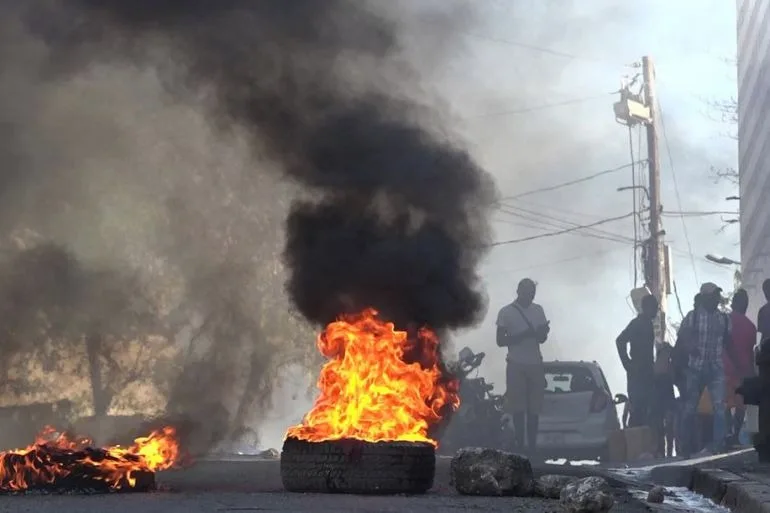Table of content
- 1 Haiti’s State of Emergency
- 2 key points:
- 2.1 Understanding the Concept
- 2.2 Unraveling the Events: Double Jailbreak and Its Ramifications
- 2.3 Escalating Violence: The Menace of Gang Activity
- 2.4 Government Response: Addressing the Crisis Head-On
- 2.5 International Concern and Solidarity
- 2.6 Charting a Path Forward: Towards Stability and Renewal
- 2.7
- 2.8 Conclusion: A Call to Action
- 2.9 More Details
Haiti’s State of Emergency
key points:
Understanding the Concept
Haiti, a nation entrenched in a complex web of socio-political and economic challenges, finds itself once again thrust into the international spotlight due to its recent declaration of a state of emergency. This declaration comes as a response to a series of alarming events, including a double jailbreak and a surge in gang violence.
Unraveling the Events: Double Jailbreak and Its Ramifications
The recent double jailbreak, orchestrated by armed groups, has not only exposed the vulnerabilities within Haiti’s correctional facilities but has also unleashed a wave of uncertainty and fear among its populace. The brazen nature of the escape highlights systemic issues within the country’s law enforcement and judicial systems, raising concerns about the ability to maintain order and uphold justice.
Escalating Violence: The Menace of Gang Activity
Gang violence has long been a scourge on Haitian society, perpetuating a cycle of fear, instability, and suffering. The recent escalation in gang-related activities further underscores the challenges facing efforts to foster peace, security, and development. Innocent civilians are caught in the crossfire, facing threats to their safety and well-being daily.
Government Response: Addressing the Crisis Head-On
In response to the unfolding crisis, the Haitian government has taken decisive action by declaring a state of emergency. This declaration signals a commitment to restoring law and order, protecting citizens, and holding perpetrators of violence accountable for their actions. Security forces have been mobilized to quell unrest and apprehend those responsible for perpetuating chaos and insecurity.
International Concern and Solidarity
The situation has not gone unnoticed by the international community, which has expressed deep concern over the deteriorating security situation and its humanitarian ramifications. Calls for solidarity and support have echoed from various corners of the globe, as nations recognize the urgency of addressing Haiti’s plight and assisting in efforts to stabilize the country.
Charting a Path Forward: Towards Stability and Renewal
Rebuilding Haiti’s social fabric and restoring confidence in its institutions require a concerted and comprehensive approach. Beyond immediate security measures, sustainable solutions must be pursued to address the root causes of violence and instability. This includes tackling issues such as poverty, inequality, and corruption while promoting inclusive governance and economic opportunities for all Haitians.
Conclusion: A Call to Action
As navigate through this turbulent period, it is imperative for stakeholders both within the country and abroad to work collaboratively towards a future defined by peace, stability, and prosperity. By addressing the underlying factors driving violence and insecurity, Haiti can chart a course toward renewal, offering hope to its citizens and the international community alike.
More Details
Haiti confronts political instability, economic fragility, and environmental vulnerability. Widespread poverty, inadequate access to services, and environmental degradation exacerbate the situation. Despite international aid, challenges endure, necessitating coordinated efforts for stability and development. Haiti’s history of coups and weak governance complicates its path to democracy.
The economy, reliant on agriculture, faces obstacles like deforestation and susceptibility to natural disasters. Social issues like poverty, unemployment, and healthcare disparities persist. Environmental degradation, exacerbated by deforestation and soil erosion, exacerbates vulnerability to natural disasters. International aid aims to alleviate humanitarian crises and support sustainable development, but ongoing challenges demand sustained attention and cooperation.
For More Articles Click Here.
